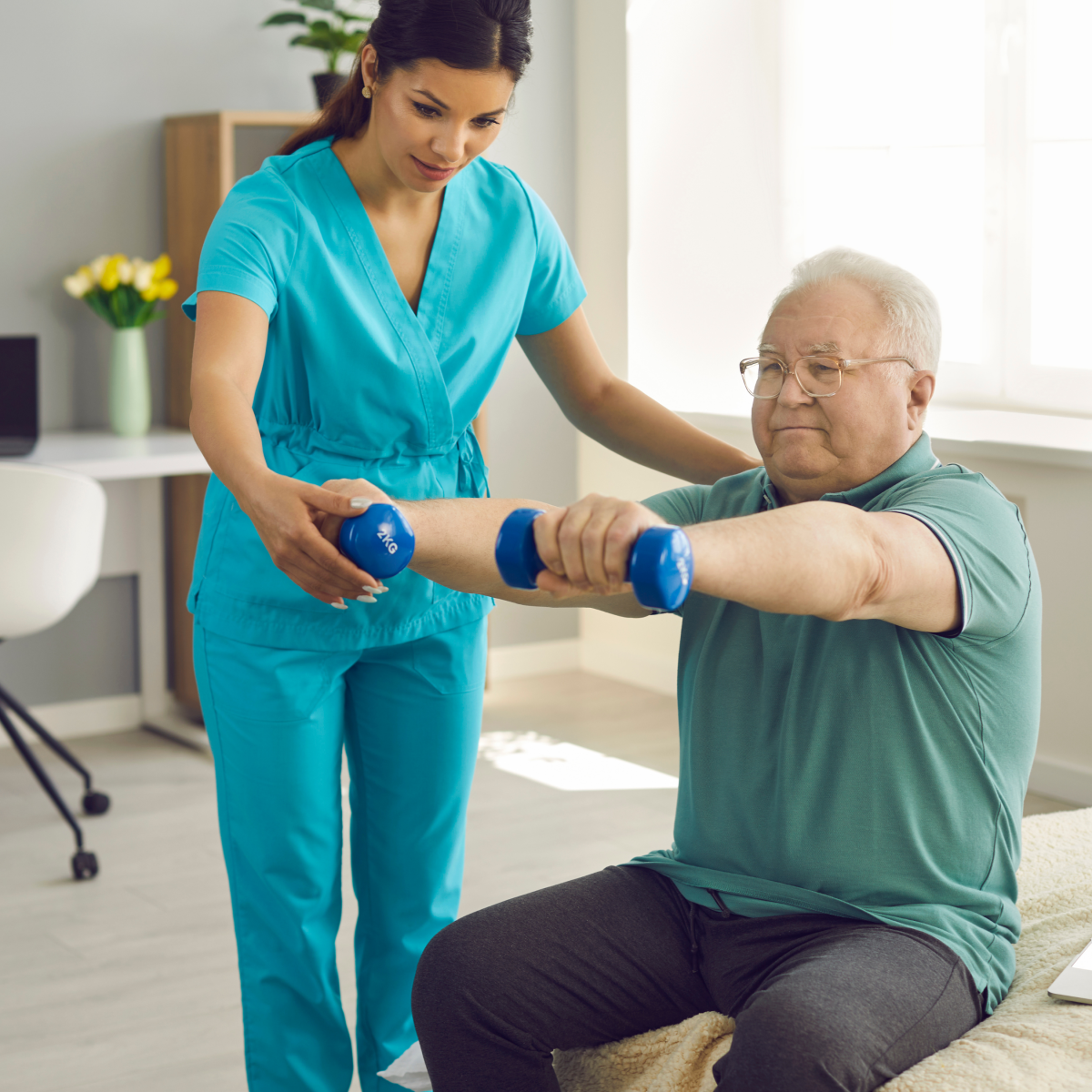Rehabilitation Nurse
Job Description
Rehabilitation Nurses are responsible for working with patients of all ages, their families and caregivers who suffer from a chronic illness or disability. They help people recover by conducting injury management services and facilitate rehabilitation outcomes. They work with health care professionals including Occupational Therapists, Accredited Exercise Physiologists, Physiotherapists, Registered Nurses, Rehab Counsellors, Social Workers, Pyschologists, Speech Pathologists, Personal Trainers and many more, to create care plans based on the goals of the patient. Rehabilitation Nurses can specialise further in roles such as Admissions Liaison, Case Manager, Nurse Educator, Pain Management, Researcher and Home Care Therapy. Government departments and not-for-profit organisations are the most common employers of Rehabilitation Nurses, however there are many in the industry who are employed by privately funded organisations. Rehabiltiation Nurses work in public and private hospitals, home health agencies, for insurance companies and rehabiltiation providers and other various jurisdictions.
Rehabiltiation Nurses can treat a range of conditions, which include but are not limited to:
- ALS
- Amputation
- Brain Injury
- Burns
- Cancer
- Cardiovascular
- Cerebral Palsey
- Guillain-Barre Syndrome
- Parkinsons Disease
- Major Joint Replacements
- Multiple Sclerosis
- Organ Transplant
- Pulmonary Disease
- Spinal Cord Injury
- Stroke
To become a Rehabiltiation Nurse you will first need to be a Registered Nurse (RN). Registered Nurses work as part of a multidisciplinary team alongside other skilled professionals including doctors, surgeons, specialists, therapists, specialty nurses, social workers and many others to provide ongoing patient care to people who are sick, disabled, injured or recovering from surgery.
Registered nurses deliver primary health care predominantly in hospitals, clinics, assisted living facilities, aged care facilities, Government or military institutions, community or school settings, in the home or in outpatient facilities.
Some of the responsibilities of Nursing include:
- Assessing, observing and speaking to patients
- Planning and carrying out nursing care according to accepted nursing practices and standards
- Monitoring the condition and health of patients and record their progress
- Recording vital signs - temperature, blood pressure, heart rate and blood sugar
- Drawing blood, urine samples, and other body fluids for lab work
- Preparing patients for exams and treatment
- Administering medications, monitoring patients for side effects and reactions
- Providing pre-operative and post-operative care
- Dressing wounds, providing interventions, treatments, therapies, medications
- Assisting in medical procedures as needed
- Consulting with other health professionals such as doctors
- Taking part in health education and other health promotion activities
- Educating patients and families about treatments, care and health
- Providing emotional support to patients and relatives
- Supervising and mentoring trainee nurses and students
You can specialise in other roles while working as a Nurse, undertaking further studies to obtain qualifications and specialise in a particular area of nursing.
Read about all other Specialty Nursing Roles here
Qualifications
To become a Registered Nurse in Australia you need to complete a 3-year Bachelor of Nursing, which is available at most Australian universities. Alternatively, for students with previous tertiary qualifications, complete a two-year Master of Nursing (Graduate Entry) program. Further study is essential if you are looking to take the next step in your career and advance in specialist nursing roles.
A Rehabiltation Nurse is often required to hold a valid membership within their own area of expertise. For example; a professional association (eg. Occupational Therapist, Accredited Exercise Physiologist, Physiotherapist, Registered Nurse, Rehab Counsellor, Social Worker, Pyschologist, Speech Pathologist, etc)
Nurses who specialise in a particular area of medicine may need to complete further studies or specialist training and obtain relevant experience.
All Nurses must apply to the Nursing and Midwifery Board of Australia (NMBA). Registration must be renewed annually.
Attributes
- Approachable
- Autonomous
- Calm
- Cheerful
- Communicator
- Confident
- Courteous
- Determined
- Devoted
- Diligent
- Energetic
- Enthusiastic
- Focused
- Integrity
- Interpersonal
- Organised
- Patient
- Perceptive
- Positive
- Procedural
- Punctual
- Welcoming
Key Skills
- AHPRA Registration
- Nursing Practice
- Quality Improvement
- Critical Care
- Conflict Resolution
- Patient Care
- Developing and implementing care policies
Future Prospects
Registered Nurses can undertake further studies to obtain qualifications and progress their career into more senior positions such as;
Registered Nurses can specialise in other roles, undertaking further studies to obtain qualifications and specialise in a particular area of nursing. Specialised Nursing Roles include:
- Aged Care Nurse
- Alcohol & Other Drug Nurse
- Anaesthetic Nurse
- Cardiac Nurse
- Child and Family Health Nurse
- Community Health Nurse
- Critical Care & Emergency Nurse
- Flight Nurse
- Infection Control Nurse
- Intensive Care Specialist Nurse
- Mental Health Nurse
- Midwife
- Oncology Nurse
- Paediatric Nurse
- Palliative Care Nurse
- Perioperative Nurse
- Post Operative Nurse
- Rehabilitation Nurse
- Surgical Nurse
- Theatre Nurse
